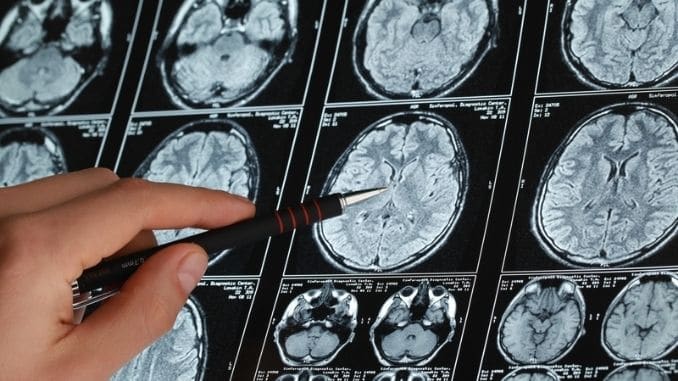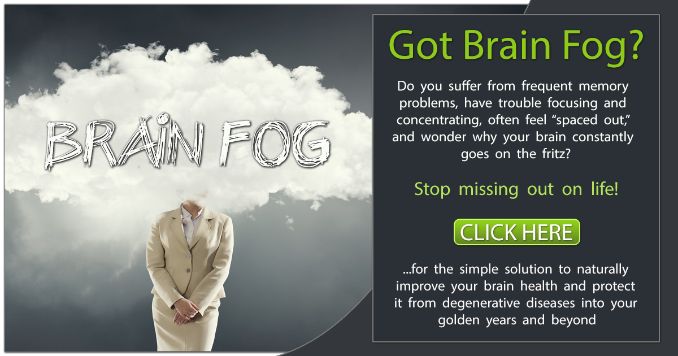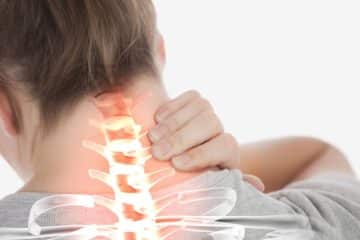Where are my keys?
I came into the room for something. What was it?
Oh, that was today? I thought that was next week!
…
Anyone can experience a lapse in memory once in a while. But how can you tell the difference between normal slips and more serious long-term memory loss?
Cases of Alzheimer’s Are Increasing
According to the Alzheimer’s Association (AA), more than 6 million Americans are living with Alzheimer’s disease. By 2050, this number is projected to rise to nearly 13 million. In the U.S., Alzheimer’s and other types of dementia increased 16 percent during the COVID-19 pandemic.
These are sobering statistics, and ones that concern us all. Indeed, one in three seniors dies with Alzheimer’s or another form of dementia. The disease kills more people than breast cancer and prostate cancer combined.
While scientists continue to search for a cure, we do have some medicines that can slow the progression of the disease. The earlier treatment begins, the better the outcomes. That means an early diagnosis can make a significant difference in a person’s quality of life.
The AA states that one treatment in particular—aducanumab (Aduhelm) may potentially delay clinical decline in those with Alzheimer's. Others can help lessen symptoms, such as memory loss and confusion, for a limited time. “An early Alzheimer's diagnosis provides you with a better chance of benefiting from treatment,” the organization states on their website.
Other benefits of an early diagnosis include:
- An opportunity to participate in clinical trials, which may provide medical benefits.
- A chance to prioritize health—make lifestyle changes that may help preserve cognitive function.
- Feeling less anxiety over symptoms—a clear “reason” for why you feel as you do.
- An opportunity to plan and accomplish things you have always wanted to do before it’s too late.
The Difference Between Aging and Dementia in the Brain
The difference between normal forgetfulness and dementia or Alzheimer’s is the health of the brain. In a normal person, the brain may shrink a little with age but otherwise will remain mostly healthy. In a person with dementia, the brain will show clear signs of physical damage. Indeed, dementia is a term for a group of symptoms that occur when the brain is physically damaged by disease.
Alzheimer's disease, for instance, destroys neurons and their connections in parts of the brain and causes a naturally occurring protein called beta-amyloid to clump together and form plaques. It causes other proteins to tangle and form threads inside the neurons and allows the buildup of toxic waste in the brain.
All of this damage can be plainly seen in a brain imaging test once Alzheimer’s takes hold. And of course, it is the reason why individuals struggle with memory and cognition problems.
Other types of dementia also damage the brain. Vascular dementia, for instance, which often follows a major stroke, damages brain tissue and causes a significant portion of it to die.
Normal Forgetfulness as You Age
We all forget things now and then. It’s why sticky notes are so popular! But we do tend to forget a little more often as we age.
Most people need a little more time to remember things when they get older and may get distracted more easily. This can begin as early as our 40s, and progress as we go into our 50s, 60s, and beyond. The Alzheimer's Society of Canada notes that almost 40 percent of people will experience some form of memory loss after turning 65 years old.
Some normal signs of age-related memory changes may include:
- Struggling to find a word but remembering it later.
- Forgetting the name of an acquaintance.
- Forgetting the most recent events.
- Occasionally misplacing something, but retaining the ability to retrace your steps and find it.
- Worries about memory that friends and family don’t share.
- Having more difficulty multi-tasking.
Scientists sometimes divide normal age-related memory changes into these categories:
- Transcience: This is when the brain forgets some memories over time. So you may be unable to recall the details of a conversation you had a year ago.
- Absentmindedness: This is a type of distraction-related memory change. You may not be able to focus as well as you once did. You could forget an appointment, for instance, because you weren’t focused on your schedule for that day.
- Forgetfulness: This is a type of memory change that could be related to other things going on in your life. If you’re depressed, for instance, you may be forgetting more things than usual. If you’re anxious or worried about something, the same thing could happen over the short term.
In general, as long as your memory loss isn’t affecting your daily life or routine, it’s probably nothing to worry about. It’s when it begins to affect your ability to live independently that it becomes more serious.
10 Early Signs of Alzheimer’s or Other Forms of Dementia
Signs of Alzheimer’s and dementia, on the other hand, are more serious and more disruptive. They are also certain to get worse over time.
1. Forgetting Important Information
Instead of merely forgetting where you put your phone or when an appointment was scheduled, you forget something more serious like the name of a friend or loved one, the date of your birthday, where you live, how to get home, or what someone just told you 10 minutes ago.
2. Asking the Same Question Over and Over
This is one of the clearer signs that something is wrong. The person asks for the same information over and over again: “Where are my keys?” and then ten minutes later, “Where are my keys?”
3. Trouble Performing Normal Tasks of Life
Those with dementia may find it difficult to complete daily tasks like driving to a familiar location, organizing a grocery list, paying monthly bills, or remembering the rules of a favorite game.
4. Inability to Solve Problems
You’re out of flour and you wanted to make cookies. What do you do? A person with dementia may struggle with this. They may get flustered or frustrated in trying to find a solution.
5. Feeling Disoriented
You go to a new shopping center with your daughter. After a few minutes, you feel anxious. You don’t know where you are or how to get home. You may become upset. When disoriented, seniors with dementia may appear lost or become easily aggravated.
6. New Struggles with Speaking or Writing
If a loved one struggles to follow a conversation or complete their thoughts in a letter or email, it’s time to check with the doctor. They may stop and start or repeat themselves. They may also have trouble naming familiar objects or substituting other names for them. (Calling a “watch” a “hand clock.”)
7. Putting Objects in Unusual Places
If you find your father’s cell phone in the bathroom cabinet, you have a right to be concerned (unless he typically stores the phone there). Putting things in odd or unusual places can be a sign of dementia.
8. Changes in Hygiene
Not bathing, neglecting to brush their teeth, or struggling to get dressed as they usually do could be signs of dementia in older people. Eating poorly or forgetting to eat could be part of this too.
9. Misplacing Things and Being Unable to Retrace Their Steps
Anyone can forget where they put something, but most of us can think back and retrace our steps. I came in from the car. I was carrying two sacks of groceries. I put them down here and…ah! Here are my keys.
A person with dementia or Alzheimer’s disease will not be able to do this. They will not be able to think back on their actions to find the item, and they may accuse others of stealing it instead.
10. Personality Changes
People in the middle or later stages of dementia may experience major personality changes. They may be more prone to aggressive behavior, paranoia, or impulsiveness. They may grow more confused, suspicious, or depressed, and will be more easily upset.

If you see any of these signs or symptoms like them in yourself or a loved one, check with your doctor. He or she will likely run some simple tests that can give you the information you need.
Remember that sometimes symptoms of memory loss can be connected to other factors, such as depression, medications, or an infection. Discovering what’s causing the problem can help patients and doctors determine the best treatment plan.
How to Reduce Your Risk of Dementia
Scientists have discovered several lifestyle habits that help maintain the health of the brain and reduce the risk that it will succumb to the disease.
- Stay active: Regular physical activity is one of the best ways to reduce your risk of dementia. Aim for 150 minutes of moderate aerobic activity per week, such as brisk walking, riding a bike, or pushing a lawnmower. Then add 75 minutes of vigorous aerobic activity, such as jogging, fast swimming, or riding a bike up a hill.
- Eat a healthy diet: A nutritious diet filled with fruits and vegetables, whole grains, and lean proteins will help keep your brain healthy. Avoid high-fat, high-sugar, and high-sodium foods.
- Don’t smoke: Smoking significantly increases the risk of dementia. Talk to your doctor about different ways to stop smoking.
- Don’t drink too much alcohol: Excess alcohol can also damage your brain over time. Aim for no more than two drinks a day for men and one drink a day for women. Less is better.
- Maintain a healthy weight: Overweight and obesity increase your risk of many diseases, including dementia. If you are overweight, losing even 5-10 percent of that weight can help.
- Check your numbers: Maintaining healthy blood pressure, blood cholesterol, and blood sugar levels all contribute to good heart health and will protect your brain health as well.
- Get 7-8 hours of sleep per night. The brain cleans itself of toxins as you sleep, so try to get at least 7 hours every night.
- Learn something new: Getting out of your comfort zone is good for your brain. That means challenging it with something new. Take a class, join a quilting group, sign up for an online course, or take lessons on a new instrument. The point is to do something you’ve never done before so your brain is forced to make new neural connections.
- Maintain your relationships: Strong social connections are protective against dementia, as they keep us mentally active. This can be challenging as we age and people move or pass away. Make a point to meet new people by volunteering, taking on a retirement job, or getting together more frequently with friends, family, and neighbors.
- Protect your head: Head trauma increases the risk of dementia, so be sure to wear a helmet when needed, fall-proof your home, and wear shoes with nonskid soles.

If you can’t remember all of these tips, keep one general rule in mind: anything you do for the health of your heart will also benefit your brain. Live a heart-healthy life and your brain will thank you!
Learn the best, proven strategies for combatting the frustrating symptoms of brain fog. Click here to discover how.
.










